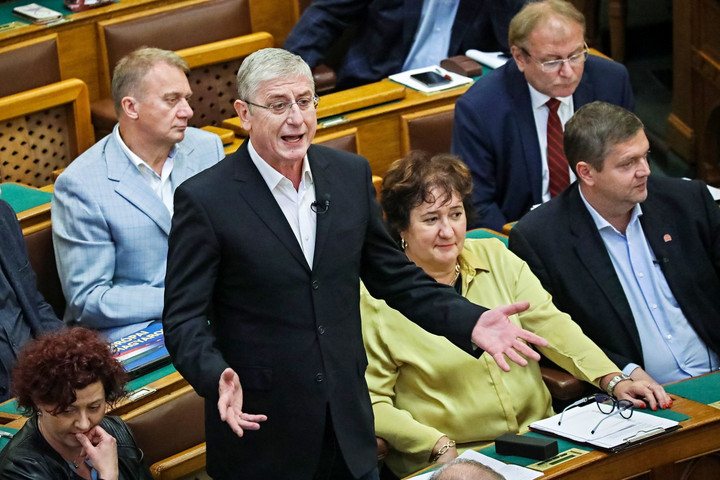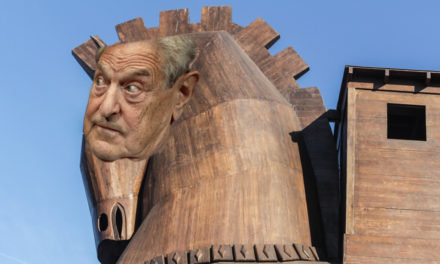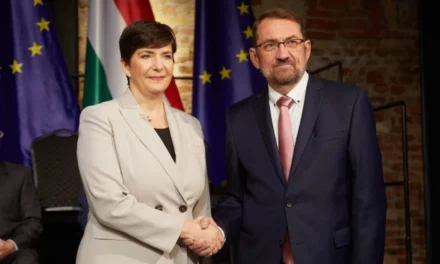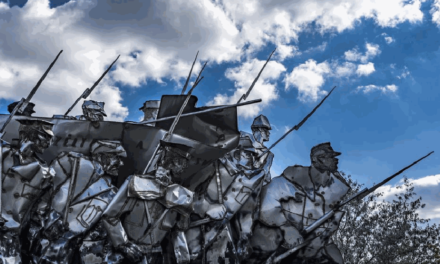It seems that the left's mourning work is far from over. It is even more interesting that the first and second line opinion makers and talking heads are still at the first of the usual phases of processing the experience of loss. Well, the undoubted advantage of denial is that it lulls you into a comfortable irresponsibility. It is enough to name an external circumstance or another person, and the burden of one's own responsibility can be miraculously escaped.
The left has developed several techniques for avoiding this mechanism, it was more comfortable to blame the ruling party's media overpower or, in a worse and more tasteless case, the uneducated, rural voters. In the light of this interpretation, Budapest remained the bastion of intellectuals, while rural Hungary prevented the change of government with its endless provincialism. The post-SZDSZ narrative became complete and completely distasteful with the condemnation of Hungarians living abroad.
Other opposition explanations of the world urged the drawing of personal conclusions. Here, the direction was given the day after the election by Péter Jakab and Ferenc Gyurcsány, who were the first to publicly backstab their leader, Péter Márki-Zay. Then suddenly everyone became enlightened: in fact, the new captain, who had been building for months, tragically steered the opposition's ship to the wrong side.
Part of the "friendly" fire against Márki-Zay was the political crime drama published by Direkt36, from which we got to know a presidential candidate who is inwardly authoritarian, headstrong and intoxicated by his own sense of justice, as well as his allies who are floundering like lame ducks or actively working against him. In the story, MZP at least seems perfectly self-identified, since we saw him as an equally unbearable character on the outside.
The processing of trauma became really spicy when Marki-Zay, who was delirious about the new party, was also targeted by members of his own movement: Zoltán Kész and Jenő Kaltenbach publicly sided with the presidential candidate who, in their view, was embezzling campaign funds. Even Katalin Lukácsi, always an enthusiastic activist, rebuked the party founding plans and MZP rather than praising them. Of course, other opposition opinion makers were not spared either, often questioning Márki-Zay's mental fitness as well. (Nota bene: we are still talking about left-wing preachers!)
The personal responsibility of Márki-Zay, who draws the logos, proofreads the campaign newsletter, and micromanages the national campaign, is of course indisputable. Already when he took over the baton from Karácsony, who was unsure of his abilities, and gave a confusing speech full of meaningless phrases, it was already felt that difficult months were coming. However, we did not hear the subtlest, most discreet self-criticism from any of his allies who blamed him.
When will those who let the self-proclaimed Messiah of Hódmezővásárhely take responsibility?
Who, without saying a word, allowed the MZP to run amok, telling racist jokes? Those who, in the grip of Orbán-phobia, acquitted their leader who crossed all boundaries of good taste?
In other words, it is worth starting to draw the personal consequences first with the fallen party leaders of the opposition: if Gyurcsány, Jakab and the others should not have resigned anyway for a thousand and one reasons, then it would most certainly be because of the dishonorable election campaign. Mainly because they are sabotaging the concept of changing the opposition out of their own interests, and they are taking more years from Hungary so that a constructive political counterweight with an encouraging effect on the government can be formed. But if two-thirds of the fifth is the goal, they are on an excellent path.
Source: Mandiner.hu
Author: Milán Constantinovits
Picture: Róbert Hegedűs













